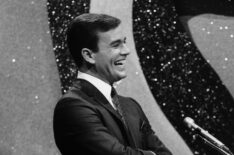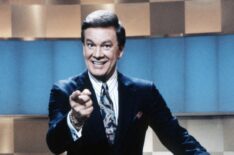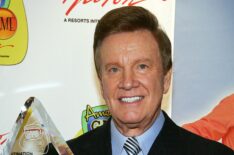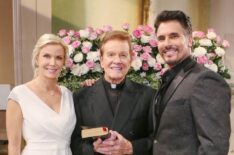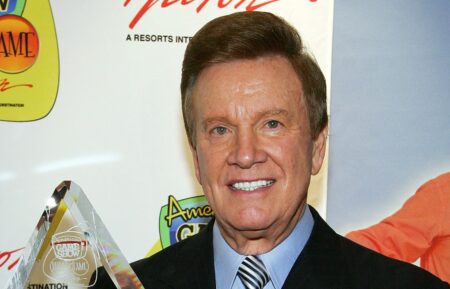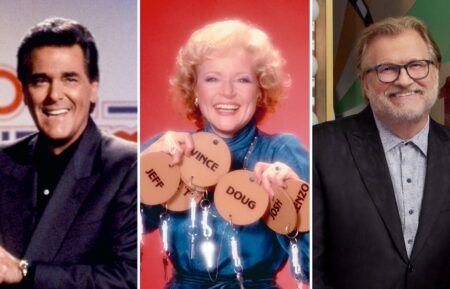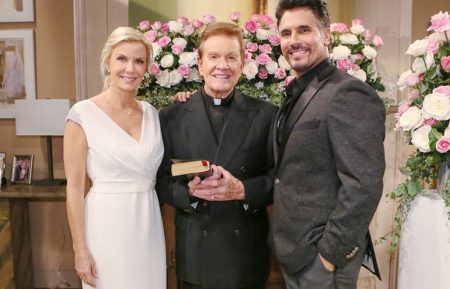Wink Martindale

Game Show Host • Personality • Producer
Birth Name: Wiston Conrad Martindale
Birth Date: December 4, 1933
Death Date: April 15, 2025 — 91 years old — obituary
Birth Place: Jackson, Tennessee
A staple of television game shows since the 1960s, Wink Martindale's mellifluous voice, toothy grin and abundant hair made him an ideal game show host for such well-loved programs as "Gambit" (CBS, 1972-76), "Tic-Tac-Dough" (NBC/CBS/syndicated, 1956-59, 1978-1986, 1990-91) and a dozen more - 15 in all, which made him the second game show host with the most programs to his name after Bill Cullen.
Martindale started his career in radio, where he quickly moved from his native Tennessee to Los Angeles; there, he dominated the rock-n-roll market during the mid-1960s before trying his hand at television. His initial efforts failed to attract an audience until he hosted the popular "Gambit." A revival of "Tic-Tac-Dough" in the late '70s proved even more successful, and Martindale began producing his own game shows in the 1980s and 1990s.
Martindale left hosting in the late '90s to work as a commercial pitchman, but returned to the format in 2008 as a guest host for the Game Show Network. Eternally polished and professional, Martindale epitomized game show hosts for over four decades.
Born Winston Charles Martindale in Jackson, TN on Dec. 4, 1934, he earned his unique moniker from a childhood friend, who was unable to pronounce "Winston." From an early age, Martindale was fascinated by broadcasting and announcing; even convincing his Sunday school teacher, who managed the local station WPLI, to hire him as a disc jockey. Martindale's professional career began at the age of 17, just three months before he graduated from high school.
He soon moved on to other Jackson-area stations before landing his dream job at the Memphis station WHBQ. He served as the host of its popular "Clockwatchers" morning show while completing his Bachelor of Science degree at Memphis State University (later University of Memphis). There, he met a young local singer named Elvis Presley through DJ Dewey Phillips, who was playing his first singles to great response from teenaged audiences.
When WHBQ launched its own television station in 1953, Martindale was hired to host one of its first programs, a children's show called "Mars Patrol." He later moved on to a music show called "Teenage Dance Party," which in 1956 featured Presley in one of his first television interviews. Martindale would remain friendly with the iconic star throughout his life; ironically, Martindale's second wife, Sandy Ferra, was a former girlfriend of Presley's who danced in several of his films.
After seven years at WHBQ, Martindale requested a transfer to a larger market, and in 1959, he was sent to Los Angeles to host the morning show at the venerable KHJ while hosting a West Coast version of "Teenage Dance Party" that broadcast from the Santa Monica Pier. Martin also began making inroads to his own career as a pop singer; he appeared as himself, singing "All Love Broke Loose" in 1958's "Let's Rock" before he enjoyed success with a spoken-word cover of "The Deck of Cards," a Christian-oriented song that had been a country hit in the 1940s. His version, released in 1959, was a Top 10 hit on the Billboard singles chart, and earned him an appearance on "The Ed Sullivan Show" (CBS, 1948-1971).
Martindale's popularity allowed him to quickly scale the heights of the Los Angeles radio market. Within a year of arriving there, he had progressed from KHJ to a newer Top 40 station, KRLA, which was trying to surpass KFWB, the biggest station in the city. By 1962, he was the morning DJ for KFWB and the No. 1 radio personality in Los Angeles.
He continued to dabble in pop music, as seen by a singing appearance in the racing drama "The Lively Set" (1964), but his interests were slowly shifting to television. He had landed the hosting job for a locally produced game show called "What's This Song?" (NBC, 1964-65), which was a carbon of "Name That Tune" (NBC/CBS/syndicated, 1952-1985). The show's producers felt that "Wink" was too juvenile a name for a television personality, so Martindale made his network debut as "Win Martindale."
However, the show was short-lived, as were his next few game show attempts: the Chuck Barris-produced "Dream Girl of '67" (ABC, 1966-67) and "How's Your Mother-in-Law" (ABC, 1967-68). He was soon back on the radio at the easy listening station KGIL before shifting to KMPC in 1970.
Martindale finally found TV success with "Gambit," which pitted married couples against each other in a blackjack-style competition. Produced by Merrill Heatter and Bob Quigley, who had struck gold with "Hollywood Squares" (NBC/syndicated, 1966-2004), "Gambit" quickly rose to the top of the daytime game show circuit and remained undefeated until the arrival of Merv Griffin's "Wheel of Fortune" (NBC/CBS/syndicated, 1975- ), which led to its cancellation in 1976.
Martindale returned briefly to his radio shift at KMPC, but was back on television in 1978 for his second and most popular game show, a revival of "Tic-Tac-Dough" for CBS. After a brief stumble as a network program, "Dough" found its footing in syndication, and became a top-rated game show for eight years. During this period, Martindale also hosted a revamp of "Gambit," now called "Las Vegas Gambit" (NBC, 1980-81) for NBC, but the results were short-lived.
In 1985, Martindale left "Tic-Tac-Dough" to launch his own production company, Wink Martindale Enterprises. He teamed with Merv Griffin Enterprises to produce his first game show, "Headline Chasers" (syndicated, 1985-86), but the show lasted only a season. His next effort, the Canadian co-production "Bumper Stumpers" (USA Network/Global Television Network, 1987-1990), was slightly more successful, and for the next decade, Martindale balanced hosting duties on "The New High Rollers" (syndicated, 1987-88) with producing such shows as "Trivial Pursuit" (The Family Channel, 1993-94) and "Second Honeymoon" (CBN/Global Television Network, 1987-88).
In 1996, he hosted "Debt" (Lifetime, 1996-98), which featured contestants competing to pay off their bills. The tongue-in-cheek show would be his last hosting stint for over a decade. In 2000, he penned his autobiography, Winkin' at Life.
Martindale's polished persona and self-effacing attitude made him an ideal pitchman for a variety of products in the early 2000s, most notably the Orbitz travel company. In 2007, he returned to his first career - radio - as host of a three-hour, syndicated show on the Music of Your Life satellite service, the same year his lengthy and prolific tenure as a TV host was honored by his induction into the TV Game Show Hall of Fame in Las Vegas.
In 2008, he returned to hosting as a substitute for Fred Roggin on "GSN Live" (2008-2011), an interstitial live interactive show on the Game Show Network that allowed callers and viewers who logged onto the show's website to compete for cash prizes. He easily fell in with the show's self-referential tone, which poked fun at the network's stable of classic programming, and soon found himself back in the host's chair for "Instant Recall" (GSN, 2010), a hidden camera competition.
Credits

The Quiz Show

Hilton Head Island
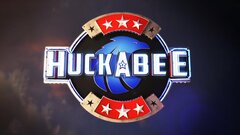
Huckabee

Daily Blast Live

Nashville InsiderStream

FABLife

Holiday Road Trip

Betty White's Off Their RockersStream

Instant Recall

Safety Patrol

Dave's World
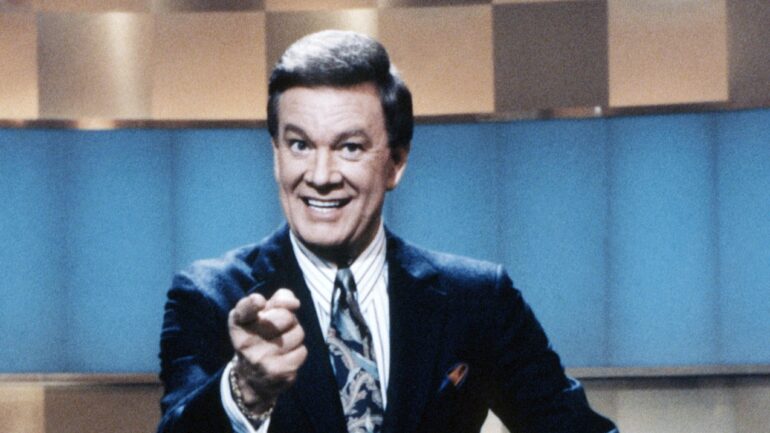
Trivial Pursuit
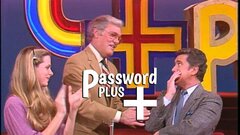
Password Plus
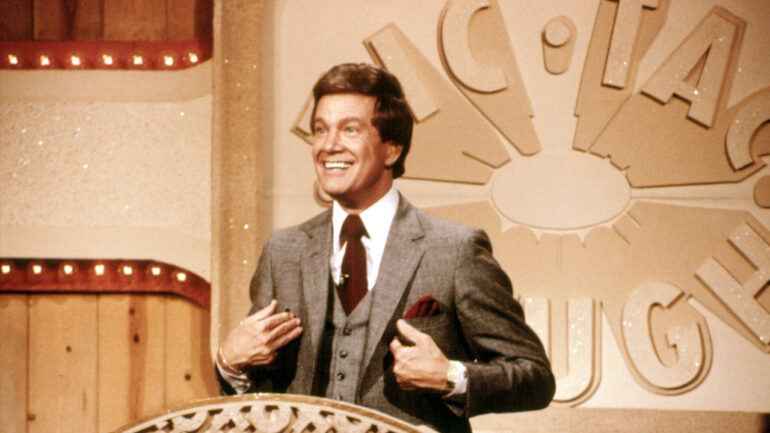
Tic-Tac-Dough
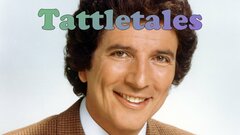
TattletalesStream
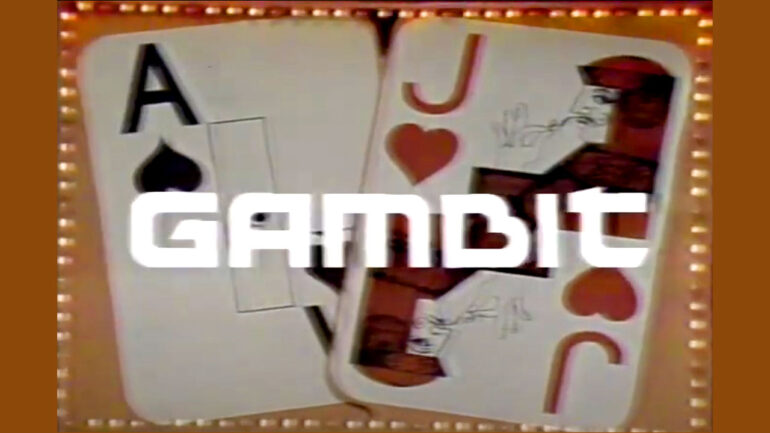
Las Vegas Gambit
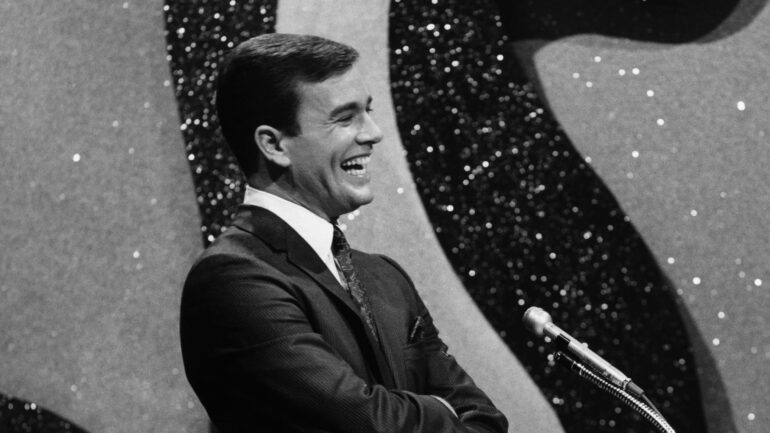
How's Your Mother-in-Law?

Dream Girl of '67



